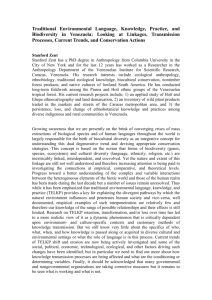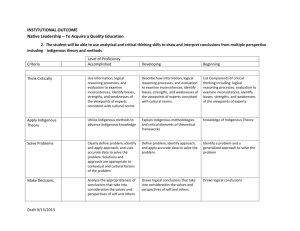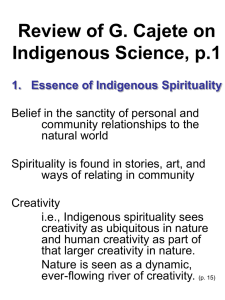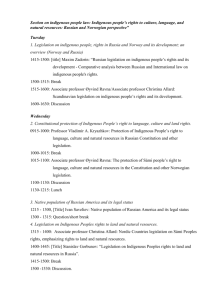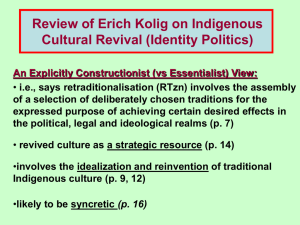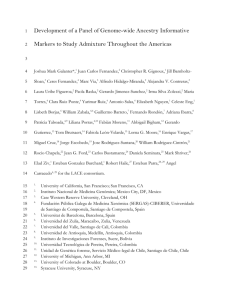Venezuela
advertisement
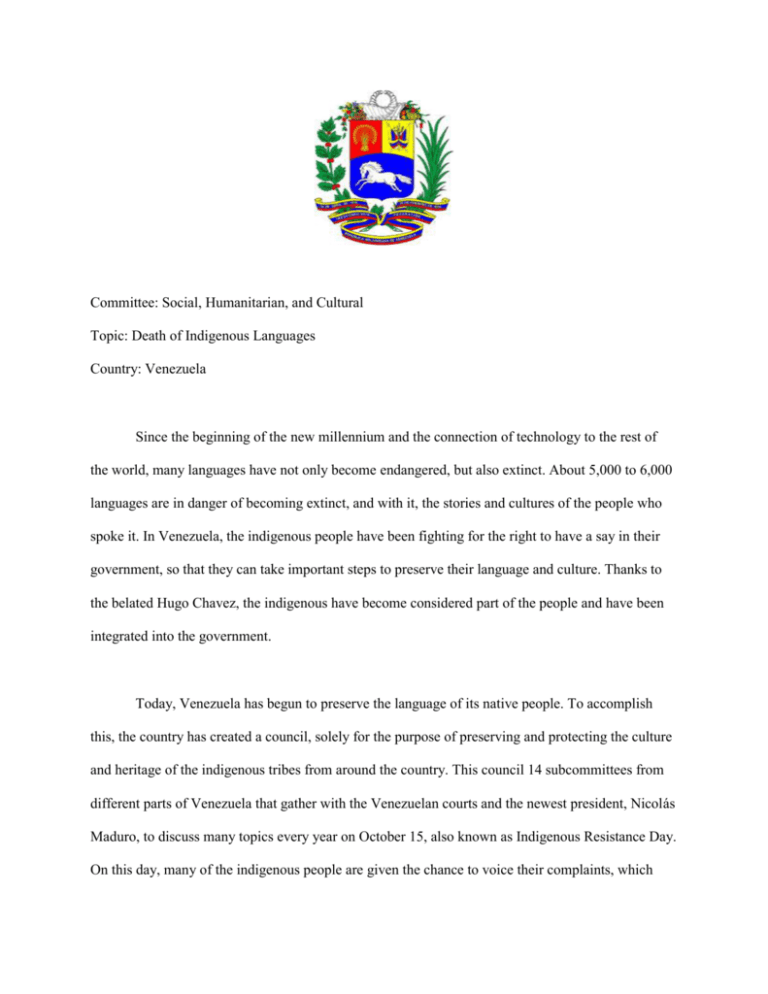
Committee: Social, Humanitarian, and Cultural Topic: Death of Indigenous Languages Country: Venezuela Since the beginning of the new millennium and the connection of technology to the rest of the world, many languages have not only become endangered, but also extinct. About 5,000 to 6,000 languages are in danger of becoming extinct, and with it, the stories and cultures of the people who spoke it. In Venezuela, the indigenous people have been fighting for the right to have a say in their government, so that they can take important steps to preserve their language and culture. Thanks to the belated Hugo Chavez, the indigenous have become considered part of the people and have been integrated into the government. Today, Venezuela has begun to preserve the language of its native people. To accomplish this, the country has created a council, solely for the purpose of preserving and protecting the culture and heritage of the indigenous tribes from around the country. This council 14 subcommittees from different parts of Venezuela that gather with the Venezuelan courts and the newest president, Nicolás Maduro, to discuss many topics every year on October 15, also known as Indigenous Resistance Day. On this day, many of the indigenous people are given the chance to voice their complaints, which included lack of food, shelter, and salvation of their languages. During this meeting, not only did they establish a committee for the people, but created an institution for the children to learn their native language, and received a promise of over 5,000 homes and/or shelter for the indigenous people. In Venezuela, though the world of technology has become a part of the everyday life, the preservation and the attention and respect for the indigenous is still strong. The hope is to provide a more diverse culture by providing the indigenous with shelter food and water through a socialistic government and through this committee of Indigenous representatives hope that the new institution will be a salvation for the language and preservation of much of Venezuela's history. 1. "Dying Cultures: Preserving the Language and Culture of the ..." 3 Mar. 2015 <http://www.ecotourism.org/news/dying-cultures-preserving-language-and-culturepem%C3%B3n-indians-venezuela> 2. "The Venezuelan Revolution & The Indigenous Struggle ..." 2014. 3 Mar. 2015 <http://www.huffingtonpost.com/dan-kovalik/the-venezuelan-revolution_b_5989882.html> 3. "The Venezuelan Revolution & The Indigenous Struggle ..." 2014. 3 Mar. 2015 <http://www.huffingtonpost.com/dan-kovalik/the-venezuelan-revolution_b_5989882.html> 4. "The Venezuelan Revolution & The Indigenous Struggle ..." 2014. 3 Mar. 2015 <http://www.huffingtonpost.com/dan-kovalik/the-venezuelan-revolution_b_5989882.html> 5. "Venezuela and Indigenous Rights | venezuelanalysis.com." 2007. 3 Mar. 2015 <http://venezuelanalysis.com/analysis/373>
